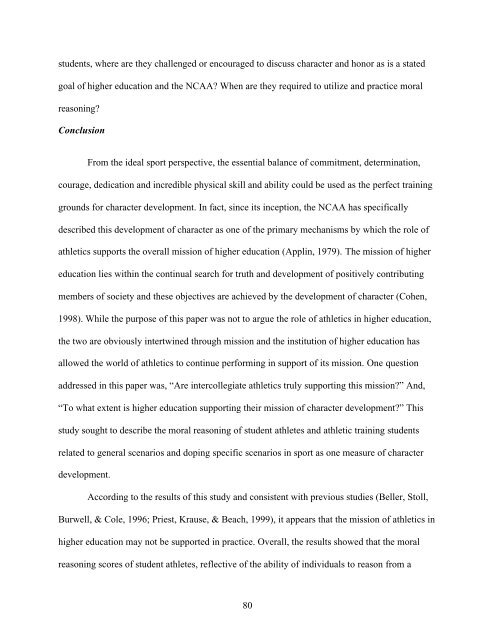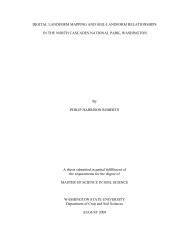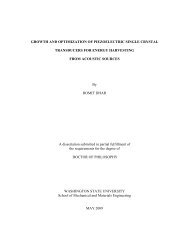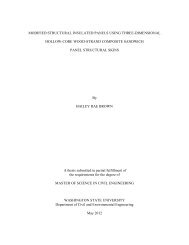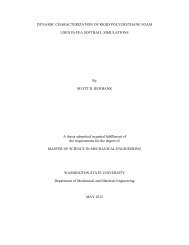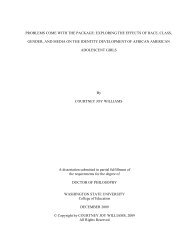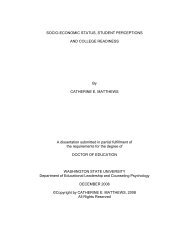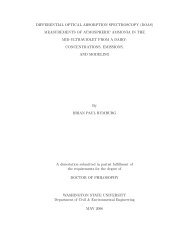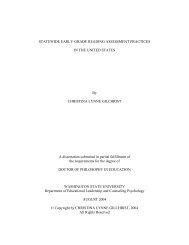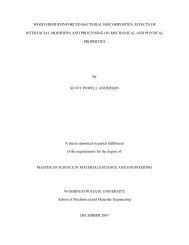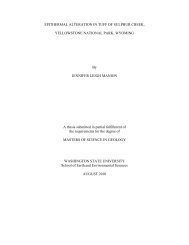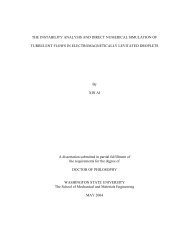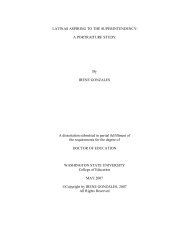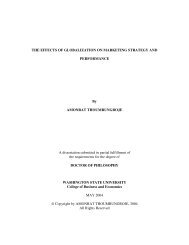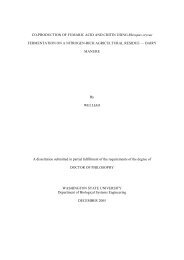the moral reasoning of student athletes and athletic training students
the moral reasoning of student athletes and athletic training students
the moral reasoning of student athletes and athletic training students
Create successful ePaper yourself
Turn your PDF publications into a flip-book with our unique Google optimized e-Paper software.
<strong>student</strong>s, where are <strong>the</strong>y challenged or encouraged to discuss character <strong>and</strong> honor as is a stated<br />
goal <strong>of</strong> higher education <strong>and</strong> <strong>the</strong> NCAA? When are <strong>the</strong>y required to utilize <strong>and</strong> practice <strong>moral</strong><br />
<strong>reasoning</strong>?<br />
Conclusion<br />
From <strong>the</strong> ideal sport perspective, <strong>the</strong> essential balance <strong>of</strong> commitment, determination,<br />
courage, dedication <strong>and</strong> incredible physical skill <strong>and</strong> ability could be used as <strong>the</strong> perfect <strong>training</strong><br />
grounds for character development. In fact, since its inception, <strong>the</strong> NCAA has specifically<br />
described this development <strong>of</strong> character as one <strong>of</strong> <strong>the</strong> primary mechanisms by which <strong>the</strong> role <strong>of</strong><br />
<strong>athletic</strong>s supports <strong>the</strong> overall mission <strong>of</strong> higher education (Applin, 1979). The mission <strong>of</strong> higher<br />
education lies within <strong>the</strong> continual search for truth <strong>and</strong> development <strong>of</strong> positively contributing<br />
members <strong>of</strong> society <strong>and</strong> <strong>the</strong>se objectives are achieved by <strong>the</strong> development <strong>of</strong> character (Cohen,<br />
1998). While <strong>the</strong> purpose <strong>of</strong> this paper was not to argue <strong>the</strong> role <strong>of</strong> <strong>athletic</strong>s in higher education,<br />
<strong>the</strong> two are obviously intertwined through mission <strong>and</strong> <strong>the</strong> institution <strong>of</strong> higher education has<br />
allowed <strong>the</strong> world <strong>of</strong> <strong>athletic</strong>s to continue performing in support <strong>of</strong> its mission. One question<br />
addressed in this paper was, “Are intercollegiate <strong>athletic</strong>s truly supporting this mission?” And,<br />
“To what extent is higher education supporting <strong>the</strong>ir mission <strong>of</strong> character development?” This<br />
study sought to describe <strong>the</strong> <strong>moral</strong> <strong>reasoning</strong> <strong>of</strong> <strong>student</strong> <strong>athletes</strong> <strong>and</strong> <strong>athletic</strong> <strong>training</strong> <strong>student</strong>s<br />
related to general scenarios <strong>and</strong> doping specific scenarios in sport as one measure <strong>of</strong> character<br />
development.<br />
According to <strong>the</strong> results <strong>of</strong> this study <strong>and</strong> consistent with previous studies (Beller, Stoll,<br />
Burwell, & Cole, 1996; Priest, Krause, & Beach, 1999), it appears that <strong>the</strong> mission <strong>of</strong> <strong>athletic</strong>s in<br />
higher education may not be supported in practice. Overall, <strong>the</strong> results showed that <strong>the</strong> <strong>moral</strong><br />
<strong>reasoning</strong> scores <strong>of</strong> <strong>student</strong> <strong>athletes</strong>, reflective <strong>of</strong> <strong>the</strong> ability <strong>of</strong> individuals to reason from a<br />
80


